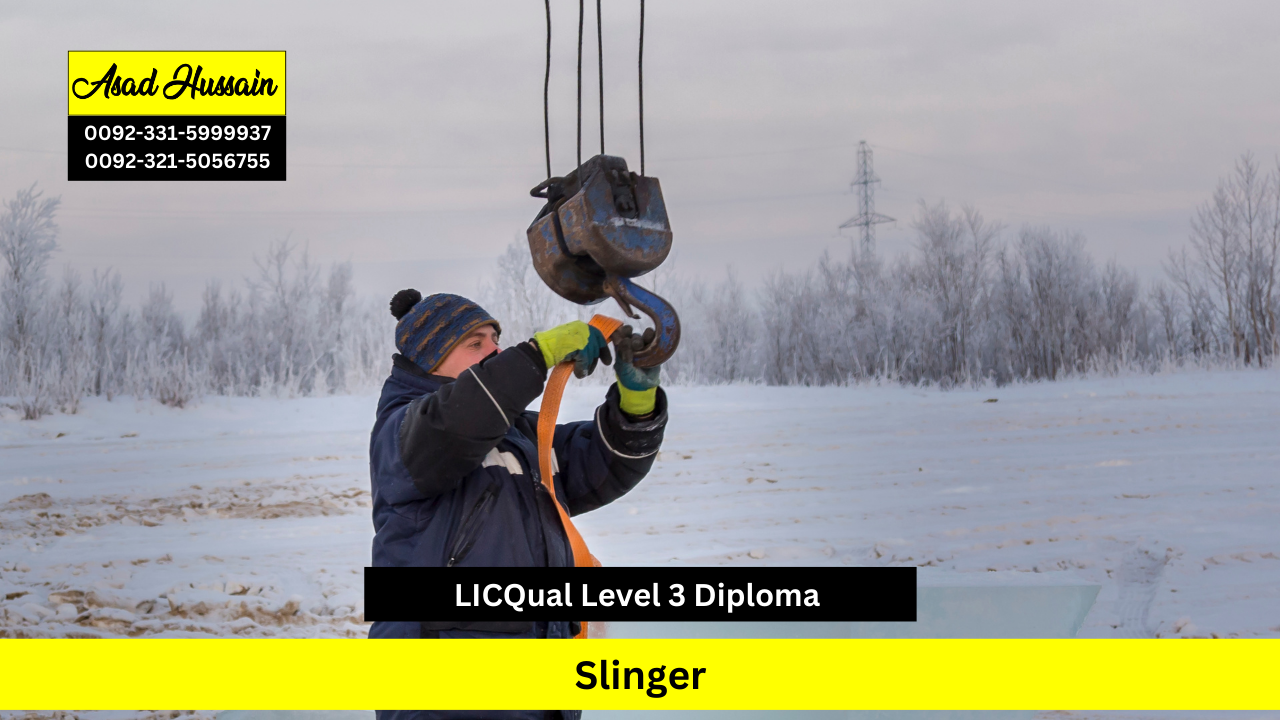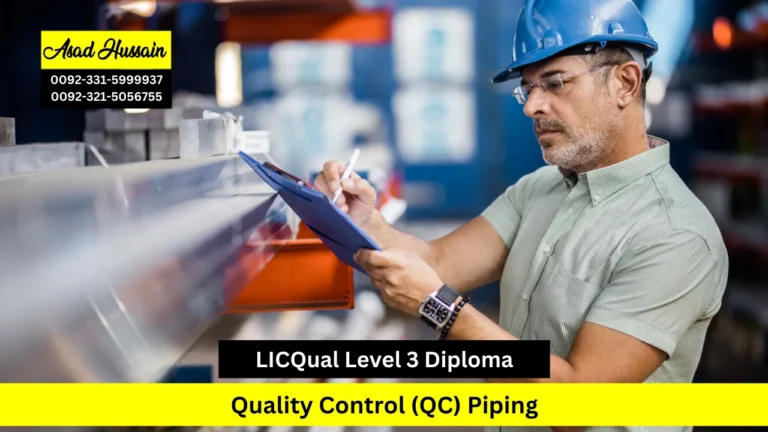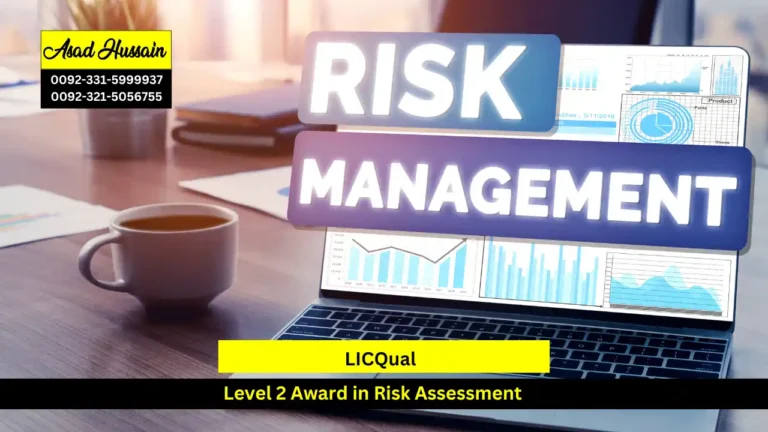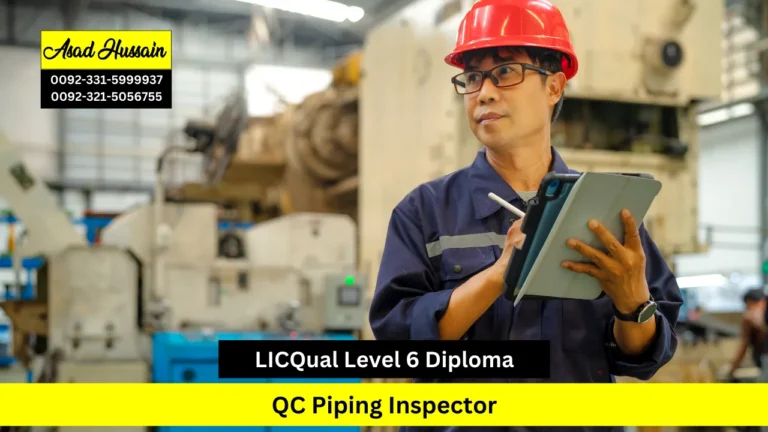The LICQual Level 3 Diploma in Slinger is an advanced professional qualification designed for individuals aiming to master high-level skills in slinging, rigging, and lifting operations. In industrial, construction, and logistics sectors, the ability to safely and efficiently manage complex lifting tasks is critical for operational safety, productivity, and compliance with international standards.
The purpose of LICQual Level 3 Diploma in Slinger is to develop learners’ expertise in advanced slinging techniques, complex load management, risk assessment, and supervisory skills. Participants will gain the knowledge and confidence required to plan, coordinate, and execute lifting operations with precision and safety, while adhering to regulatory requirements and best practices.
Through a blend of theoretical instruction and practical training, learners will acquire hands-on experience in load assessment, advanced rigging methods, equipment inspection, and team communication. The LICQual Level 3 Diploma in Slinger emphasises leadership, decision-making, and operational accountability, preparing graduates to handle challenging lifting tasks in real-world environments.
By completing the LICQual Level 3 Diploma in Slinger, learners will achieve internationally recognised credentials, enhancing career opportunities in senior lifting and rigging roles. This programme is ideal for professionals seeking to formalise existing skills or advance their careers in industrial and construction sectors.
Program Highlights
Mandatory Units
- Advanced Slinging and Signalling Operations
- In-depth Risk Assessment for Complex Lifting
- Complex Equipment Handling
- Environmental and Hazard Awareness
- Problem Solving and Troubleshooting in Lifting
- Comprehensive Knowledge of Industry Standards
The entry requirements for the LICQual Level 3 Diploma in Slinger are designed to ensure learners are prepared for advanced content and practical training. These requirements maintain high standards of safety and competence while remaining accessible to motivated professionals seeking career progression.
Age Requirements
- Learners must be at least 18 years old at the time of enrolment.
Educational Requirements
- Completion of LICQual Level 2 Diploma in Slinger or an equivalent qualification in lifting operations.
- Basic literacy and numeracy skills to understand instructions, calculations, and technical documentation.
Professional Experience
- Previous experience in industrial lifting, construction, or logistics environments is highly recommended.
- Candidates with hands-on experience in slinging and rigging will benefit most from the advanced training.
English Language Proficiency
- Learners should have adequate English proficiency to understand instructions, communicate effectively, and maintain accurate records.
- International learners may be required to demonstrate English proficiency equivalent to IELTS 6.0 or above.
These entry requirements ensure learners can fully engage with advanced slinging concepts, apply practical techniques safely, and perform lifting operations confidently in professional industrial environments.
The LICQual Level 3 Diploma in Slinger equips learners with advanced knowledge, practical skills, and problem-solving abilities to perform complex lifting operations safely and efficiently. Upon completion, learners will be capable of handling challenging slinging tasks, ensuring compliance with safety standards, and coordinating effectively with operational teams.
Advanced Slinging and Signalling Operations
- Apply advanced slinging techniques for various complex load types and challenging lifting scenarios.
- Demonstrate precise use of hand signals, radio communication, and coordinated commands with crane operators.
- Plan and execute lifts with consideration for load stability, centre of gravity, and operational constraints.
- Implement techniques to ensure safe load attachment, movement, and release.
- Evaluate lifting scenarios and adapt signalling methods for optimal safety and efficiency.
In-depth Risk Assessment for Complex Lifting
- Conduct comprehensive risk assessments for multi-faceted lifting operations.
- Identify potential hazards and apply mitigation strategies to prevent accidents.
- Develop and implement contingency plans for high-risk lifting tasks.
- Monitor ongoing operations to maintain safety standards and respond to emerging risks.
- Apply risk assessment outcomes to plan and execute lifts with minimal operational disruption.
Complex Equipment Handling
- Select appropriate lifting and rigging equipment for complex operational requirements.
- Inspect, maintain, and handle equipment to ensure operational integrity and safety.
- Recognise equipment limitations and prevent misuse during lifts.
- Coordinate multiple lifting devices and attachments to optimise efficiency.
- Apply practical techniques for the safe attachment, detachment, and adjustment of loads.
Environmental and Hazard Awareness
- Assess environmental conditions affecting lifting operations, including weather, terrain, and site layout.
- Identify hazards such as overhead obstructions, unstable ground, and nearby personnel.
- Implement measures to reduce environmental risks and enhance safety.
- Monitor changing site conditions and adjust lifting practices accordingly.
- Develop awareness of health and safety legislation related to site hazards.
Problem Solving and Troubleshooting in Lifting
- Analyse operational challenges and develop practical solutions for complex lifts.
- Address load instability, equipment malfunction, or unexpected environmental changes.
- Apply critical thinking to resolve issues while maintaining safety and compliance.
- Collaborate with team members to troubleshoot operational difficulties efficiently.
- Record and evaluate solutions to improve future lifting operations.
Comprehensive Knowledge of Industry Standards
- Demonstrate understanding of international and local lifting regulations and codes of practice.
- Apply legal, organisational, and industry standards in all lifting operations.
- Maintain compliance with safety requirements and operational protocols.
- Evaluate operational procedures against recognised standards to ensure best practices.
- Integrate knowledge of standards into planning, executing, and supervising lifts.
Upon completion, learners will be fully prepared to manage advanced lifting operations, apply safety regulations, and progress to supervisory or specialist roles within industrial and construction sectors.
The LICQual Level 3 Diploma in Slinger is designed for learners seeking advanced expertise and career progression in lifting operations.
Experienced Industrial Operators
- Professionals with prior experience in slinging or rigging seeking to formalise and enhance their skills.
- Individuals aiming to handle complex lifting operations safely and efficiently.
Team Leaders and Supervisors
- Personnel responsible for supervising lifting operations and ensuring team coordination.
- Learners seeking to improve leadership, communication, and operational oversight skills.
Health and Safety Advocates
- Individuals committed to implementing and maintaining high safety standards in lifting operations.
- Learners aiming to minimise operational risks and ensure compliance with regulations.
Career Advancement Candidates
- Operators aspiring to progress to Level 4 or Level 5 lifting and rigging qualifications.
- Individuals aiming for senior positions within construction, industrial, or logistics sectors.
Technical Skills Developers
- Learners looking to enhance practical problem-solving and troubleshooting capabilities.
- Individuals committed to mastering advanced slinging techniques and equipment handling.
The LICQual Level 3 Diploma in Slinger provides advanced knowledge, practical competence, and professional recognition, preparing learners for responsible and complex roles in lifting and rigging operations.






